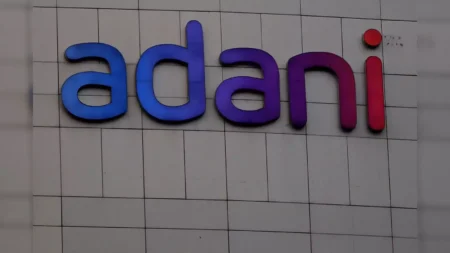- A report by Cytonn Investments expects 2022 to register lower investor sentiments
- The performance would be affected by several reasons, including a cautious stance by investors who will be monitoring the election proceedings
- The report also foresees an increase in Eurobond yields as concerns over Kenya’s high debt-to-GDP ratio persists
As Kenya heads to General Elections this August, economic experts now expect 2022 to register lower investor sentiments.
In a new report, Cytonn Investments said the performance would be affected by several reasons, including a cautious stance by investors who will be monitoring the election proceedings.
The report also foresees an increase in Eurobond yields as concerns over Kenya’s high debt-to-GDP ratio persists and an expected depreciation of the Kenyan currency as a result of increased oil prices globally and high debt servicing costs.
“The investment performance is largely affected by the market sentiments on the macro-economic indicators of an economy as they drive demand and supply which in turn leads to price movements,” the report noted.
The investment firm used the performance of the fixed income, equities and real estate markets in the previous electioneering periods to determine what could happen in 2022.
Fixed Income Market
According to the report, the fixed income market has acted as a safe haven for investors during economic uncertainties, as the market is usually highly volatile.
The performance of the fixed income market is partly determined by the macro-economic environment, which in turn inform the market sentiment.
The report noted that the Kenyan economy continues to register robust recovery from the adverse effects of the pandemic having recorded a 7.5 per cent growth in 2021. In 2022, the economy is expected to grow at an average rate of 5.1 per cent, with the National Treasury projecting a 6 per cent growth rate supported by the global recovery and the easing of COVID-19 containment measures following an increase in vaccination rates and reduced infections.
Kenyans to have more money as economy rebounds to grow by 5 per cent in 2022
“However, in the past, elections have hurt the economic growth given the disruptions that come along with the cycle,” the report noted.
According to Cytonn, in the past twenty years, save for 2020, the lowest GDP growth was recorded in 2008, following the political instability that was occasioned by the post-election crisis.
In the other three periods, the GDP declined during the election cycles and increased in the preceding years, reflecting the economic disruptions that are brought about by the elections.
“As such, we expect the 2022 electioneering period to weigh down the projected average growth of 5.1 per cent.”
The report also cautioned that the current electioneering period coincides with the closure of the FY’2021/2022, which further aggravates the borrowing appetite as the government attempts to narrow the fiscal gap.
As of March 2022, Kenya’s total public debt stood at KSh 8.4 trillion. At the beginning of the FY’2021/2022 the government had projected a target borrowing of KSh 929.7 billion which increased by 11.7 per cent to KSh 1.0 trillion in the FY’2021/2022 supplementary budget that was approved in April 2022.
In addition, the government has a total of KSh 173.3 billion worth of pending domestic maturities in the one month to the end of the fiscal year. Out of this, KSh 105.3 billion are Treasury bill maturities while KSh 68.0 billion are Treasury bond maturities.
To meet its obligations, the government has continued to issue bonds more frequently in the form of tap-sales as it seeks financial support from the local market. As of 27th May 2022, the government had offered a total of KSh 431.5 billion worth of bonds in comparison to the KSh 303.0 billion over the same period in 2021 reflecting the increased borrowing appetite.
“As such, we expect the government to maintain the elevated borrowing appetite as it seeks to finance the debt repayments as well as funding the budget deficit, which currently stands at 8.1% of GDP. Additionally, we believe that at its current borrowing levels, fiscal consolidation may take longer and the fiscal deficit is likely to exceed the projected figure.”
Interest Rates
According to the report, yields on government papers increase during periods of uncertainty mainly due to reduced investor sentiments and the need for the government as the debt issuer to give investors an additional premium for the additional risk borne.
The last two election cycles have seen an increase in the 91-day T-bill rates just before the election, which can be attributed to the uncertainty of a new government’s transition and the likelihood of political unrest as was the case in 2007.
In the past, the government has utilized the Central Bank Rate to stimulate economic activity and appeal to the public by decreasing the Central Bank Rate (CBR), having reduced the rate twice to a low of 9.5 per cent in January 2013 from 11.0 per cent in December 2012 and further to a low of 8.5 per cent in March immediately before the elections.
Since April 2020, the CBR has remained unchanged at 7.0 per cent in a bid to support the economy recover from the effects of the pandemic.
“We do not expect the rate to be affected by this election cycle, given that the economy has not fully recovered from the effects of the pandemic. Additionally, we expect the yields on the government papers to continue increasing in the short term in a bid to attract investors.”
How the Kenyan Economy performed in 2020 a mid COVID-19











